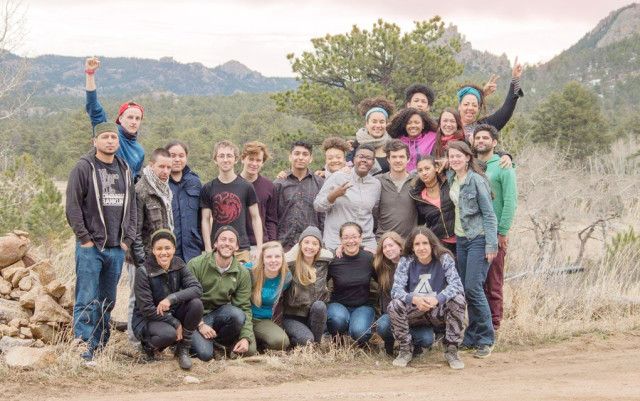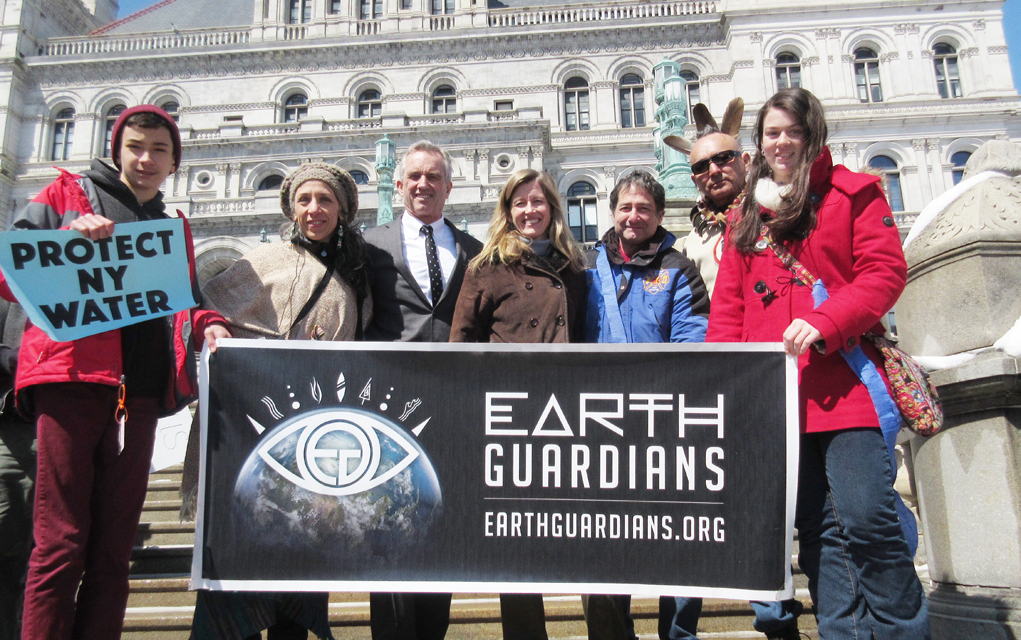
On April 8, U.S. Magistrate Judge Thomas Coffin in Eugene, Oregon handed down a victory for young environmental activists. Twenty-one young people from across the nation joined forces in 2015 to sue the federal government over its inaction in fighting climate change. They claim the government has known about the dangerous release of carbon dioxide caused by burning fossil fuels, yet has failed to take precautions to curtail impacts while watching the emissions double over the past 50 years. In November, numerous oil and gas companies asked to join the lawsuit and be listed as defendants alongside President Obama to protect their companies’ interests.
However, after hearing oral arguments from all parties in March, Judge Coffin denied the federal government and several fossil fuel companies’ request for case dismissal and upheld the youth’s constitutional right to bring the case. In doing so, the activists hope to gain stricter federal regulations of the oil and gas industry, specifically curbing carbon dioxide emissions.
“The fact that we’ve made it this far is crazy as it is. And finding ways to remind the world that we’re fighting for a just cause makes the industry terrified,” says Xiuhtezcatl Martinez, a 15-year-old Boulder resident and a plaintiff in the case.
The youth argue this case is about their constitutional right to life, liberty and property, and they are fighting for a cleaner atmosphere for both themselves as well as future generations. While this case has been brought in a federal court in Eugene, the group has similar cases in other states as well. Martinez is currently in the appeals process of a similar case in Colorado asking for a statewide moratorium on fracking until it can be proven not to adversely impact community health and wildlife, nor have other negative environmental impacts.
Martinez first became involved in activism nine years ago when he was 6, and spoke at a climate rally in Boulder. In 2012, he joined Our Children’s Trust, the organization which helped bring the federal case to court. In 2014, Martinez founded Rising Youth for Sustainable Environment (RYSE), a youth council, which is an offshoot of Earth Guardians, a Boulder-based climate-activism organization that has branches across the globe.
“We don’t really see young people getting involved and engaged in our political system,” Martinez says. “Having access to [Our Children’s Trust] that was supporting us and making the difference, taking action around that was really, really powerful.”
While 21 youth are named as plaintiffs in the federal suit, there are hundreds more young activists behind them, scattered across nations. Five of the plaintiffs, alongside 13 others from North America, form the RYSE youth council. And from April 8-10, the group met in Colorado for a leadership retreat, preparing to go back to their communities and host similar activism/initiative trainings for their peers.
“It’s the same movement. We’re fighting for the same thing,” Martinez says. “I think after these youth leadership trainings, people are going to be able to use the lawsuit to really take their leadership and apply it to something else.”

Two council members, Iris Fen Gillingham and Aidan Ferris, are fighting the same war in the political battlefield at protests against proposed oil pipelines in their home state of New York.
“New York is facing an onslaught of fossil fuel infrastructure at a time when we really need to be investing in renewables,” Gillingham says. “So as a young person, I feel it is my responsibility to prevent these pipelines and not allow my generation to be locked into a future dependent on energy extraction.”
Gillingham and Ferris often coordinate speaking at rallies and protests together. Recently, they spoke at a rally protesting the expansion of a natural gas pipeline that activists claim is dangerously close to infrastructure at the Indian Point nuclear power plant. Two days later, Gillingham went to a rally protesting another project, the Constitution Pipeline, which would have transported natural gas from Pennsylvania to New York City and Boston. At the rally, protesters including Gillingham asked state legislators to deny the Section 401 water quality certificate for the pipeline, arguing it threatened the state’s water supply. On April 22, four days ahead of the deadline, the New York Department of Environmental Conservation denied the certificate. As a result, environmentalists, including Gillingham, Ferris and their Earth Guardian peers are claiming victory.
Through its members’ efforts across the nation, RYSE helps make outcomes like the court case in Oregon possible as it serves as a coordinating body for youth movements. Whether through court cases or protests, the council seeks to inspire other young people to speak up and see who will listen.
“I think, as a youth, it’s really nice to have people who are just like ‘I want to hear what you have to say,’” Gillingham says. “Sometimes for young people there’s just a basic straightforwardness that we can lay out and people listen to that.”
The Oregon lawsuit will proceed in court with another hearing by Judge Ann Aiken, who takes over the case in response to Coffin’s retirement this year. For now, the plaintiffs have only won permission to argue the case in court.
Although the focus right now is on training youth to fight climate change within their own communities, Martinez says RYSE hopes to bridge movements, working alongside Black Lives Matter, LGBTQ and other climate change campaigns, which are all fighting for a safer, healthier future for generations to come. Yet, in a time when young voices can be easily overshadowed, RYSE and Earth Guardians provide both the platform and a community to join in a united force against climate change.
“In this work, it can get really, really depressing,” Martinez says. “It’s a really heavy issue we’re dealing with, and being able to connect with other empowered young people who are fighting for the same thing just fuels our fire, keeps us going, keeps us inspired, keeps us ready to take action.”














